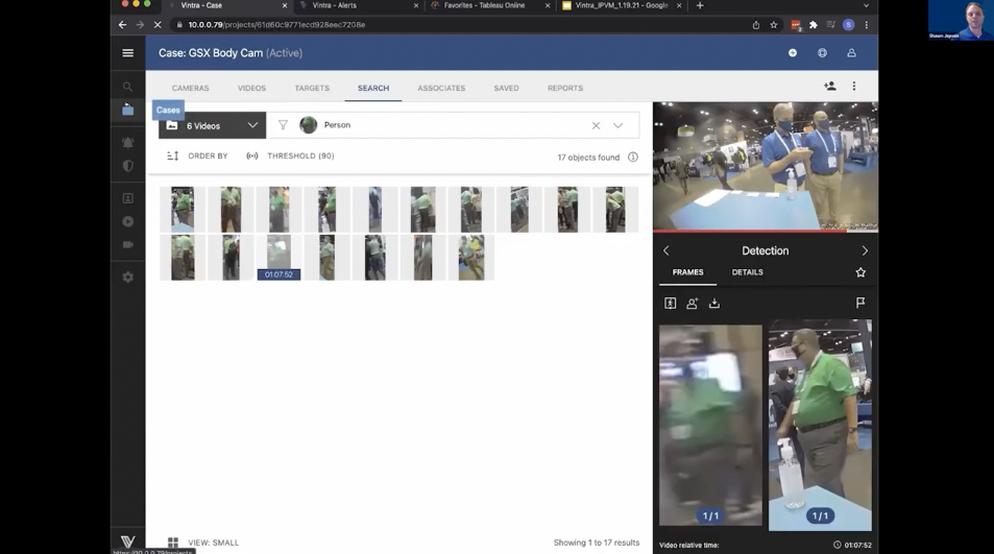|
Vintra, a company that offers facial recognition technology, has a catchy slogan for customers: “Know what the cameras know.”
It turns out, the cameras know much more about you than being able to recognize you by your face. In an industry presentation – hat tip to ACLU – Vintra entered snapshots of one man’s face before searching for him through videos from 10 stationery cameras in a California transit station. He tasked his software to make quick work out of a month’s worth of surveillance video. The software found many instances of the man’s appearance. The Vintra executive then tasked the technology with sorting out anyone who appeared within ten minutes of the “target.” Some 150 people appeared next to him once, while one man had 14 co-appearances with the target. “You can really start building out a network,” the Vintra spokesman said. “You may have one guy, that showed up a few times, that you’re interested in … and build out the networks of those people.” Mapping networks of people associated by friendship, work, romance, politics, and ideology is a key goal of “social network analysis.” It can be used to map associations and expose networks of people, whether they gather for a bank robbery, a birthday party, an extramarital affair, or a political campaign. As ACLU notes, the threat of mass surveillance is not just against a specific individual but against large numbers of people. To that we would add that facial recognition technologies, such as Clearview AI, have the capacity to use one’s face to almost instantly scrape social media to assemble another kind of map – including one’s religion and politics. Such technologies are powerful enough to control large populations, as they are already being used to do in the People’s Republic of China. When the IRS attempted to install facial recognition technology in its interface, an outcry from Congress and civil liberties groups stopped it cold. The U.S. government lacks a comprehensive law regulating the collection, use, disclosure, and retention of biometric data like facial recognition. Until such policies are thoroughly debated and developed, we would do well to regard facial recognition technology as a menace to a free society. Comments are closed.
|
Categories
All
|


 RSS Feed
RSS Feed